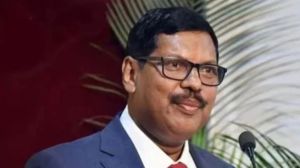Iran allows UN to inspect machinery
Iran is allowing UN inspectors to examine thousands of imported uranium enrichment machinery parts to determine the origin of weapons-grade ...

Iran is allowing UN inspectors to examine thousands of imported uranium enrichment machinery parts to determine the origin of weapons-grade uranium found in Iran this year, a senior Iranian official said on Tuesday.
The move could settle one of the key outstanding questions about Iran’s nuclear programme ahead of an October 31 deadline for Tehran to prove it has no secret atomic weapons ambitions.
Tehran insists its nuclear facilities are geared solely to electricity generation and has blamed the traces of highly-enriched uranium found at two nuclear facilities on contamination from machinery bought abroad.
But Western diplomats have expressed scepticism about Iran’s explanation that it does not know where the parts came from as they were bought from black market middlemen in the 1980s.
Iran’s representative to the International Atomic Energy Agency (IAEA) Ali Akbar Salehi said IAEA experts, who arrived in Tehran on Monday, were being ‘‘allowed to see the components and take sampling’’.
‘‘Now it’s up to them to find out where the contamination came from. We have done our best,’’ he said in a brief telephone interview.
Salehi said Iran possessed thousands of imported machinery parts for its nuclear programme. Iran late last week handed over what it said was a complete report of its past nuclear activities to the IAEA.
IAEA chief Mohamed El Baradei has said he needs full disclosure from Iran to dispel doubts about its nuclear aims.
An IAEA board of governors meeting on November 20 will decide whether Iran has done enough to allay US-led concerns that Iran may have been covertly developing nuclear arms.
Under mounting pressure to come clean about its nuclear activities, Iran last week agreed to suspend uranium enrichment and agree to more intrusive snap inspections by the IAEA. The deal, brokered by the foreign ministers of Britain, France and Germany, was greeted as a positive step by the IAEA and Washington. But they added that the onus was on Iran to implement the agreement fully.
Salehi said Iran was still studying the exact details of how and when it would suspend its uranium enrichment activities. ‘‘There is a tacit understanding which is being studied. I expect an agreement will be reached in the next few days,’’ he said.



- 01
- 02
- 03
- 04
- 05




























